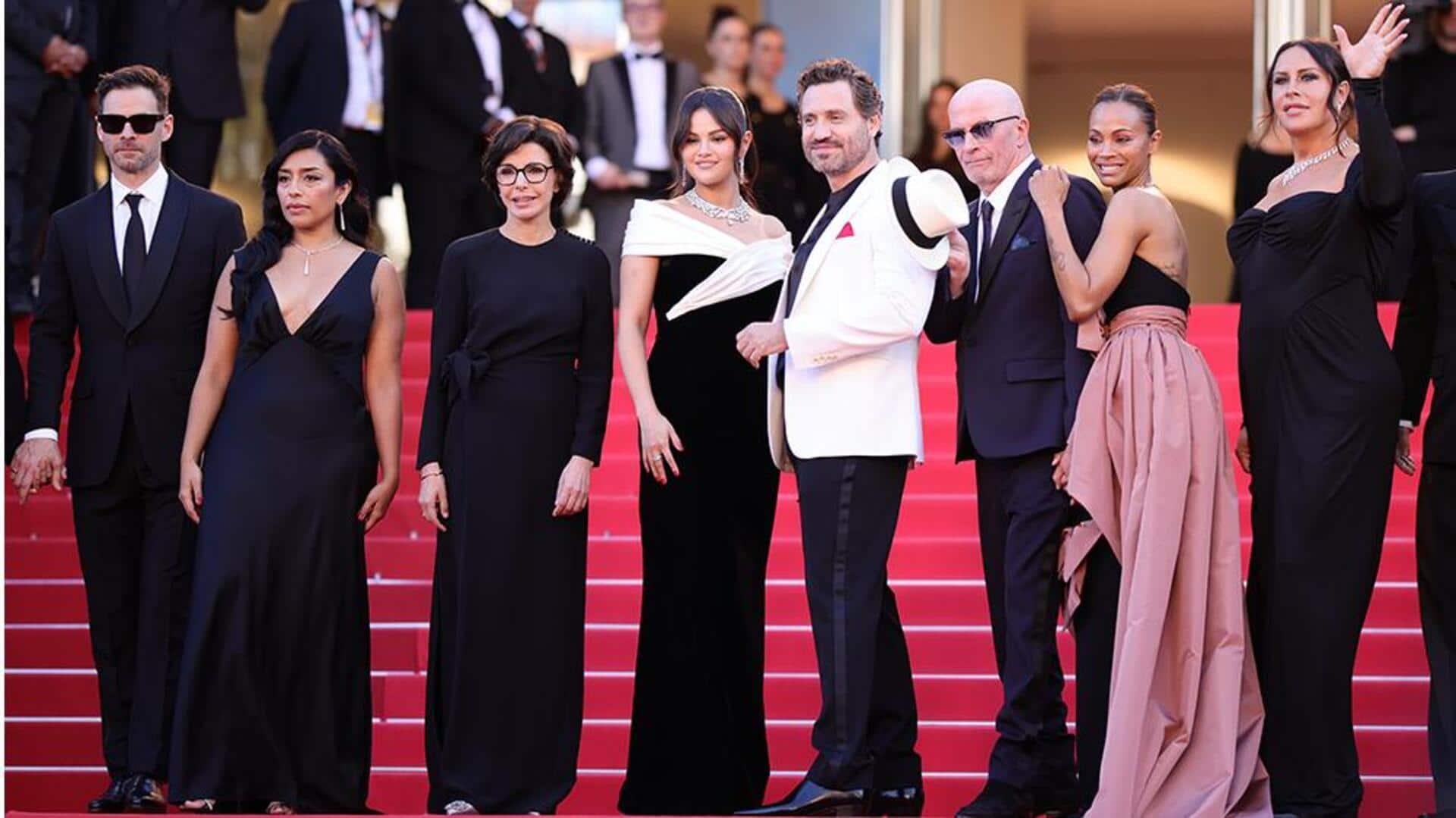
'Emilia Pérez' sets new record at Cannes; receives longest-standing ovation
What's the story
The Spanish-language musical drama, Emilia Pérez, has reportedly set a new record at this year's Cannes Film Festival by receiving the longest-standing ovation, thus far. The audience erupted into applause for an unprecedented nine minutes, punctuated by hooting, whistling, and cheering in appreciation of the director and cast. The film stars Zoe Saldaña, Selena Gomez, and Karla Sofía Gascón and is directed by Palme d'Or winner Jacques Audiard.
Premiere
Gomez broke down in tears after an overwhelming ovation
Following its world premiere at Cannes, Audiard took the microphone to thank the audience at the Palais, after which applause resumed for two more minutes. This emotional moment brought Saldaña, Gascón, and Gomez to tears. The film is co-produced by Why Not Productions, Page 114, Saint Laurent Productions, Pathé, and France 2 Cinema and is set to hit theaters in France on August 28.
Twitter Post
An emotional Gomez seen wiping away her tears
Selena Gomez receives standing ovation at the Cannes Film Festival following the premiere of ‘EMILIA PEREZ’ pic.twitter.com/ml001PqQnT
— Film Updates (@FilmUpdates) May 18, 2024
Plot
Plot and cast details: A brief look
Emilia Pérez is a unique blend of drama and music. Saldaña portrays Rita, an overqualified lawyer recruited by a drug cartel leader Manitas, played by Gascón. Gomez takes on the role of Manitas's unsuspecting wife. The narrative is advanced through original songs performed by the actors. Notably, this film marks a significant moment for Gascón, a rising trans actor from Madrid.
Nominations
It is competing for prestigious awards at Cannes
Emilia Pérez is not only one of the most talked-about films at Cannes this year, but it's also in the running for Audiard's second Palme d'Or. The film is also eligible for the Queer Palm—an award that recognizes titles dealing with LGBTQ+ themes. This isn't Saldaña or Gomez's first time ascending the famed red stairs to the Grand Theatre Lumiere at Cannes; Saldaña debuted in 2013 with Blood Ties, and Gomez starred in The Dead Don't Die in 2019.
Statement
Audiard didn't conceive it as a feature-length film!
Speaking to Variety earlier this year, Audiard revealed that he didn't initially conceive Emilia Pérez as a feature-length film. Originally envisioning it as "an opera libretto in four acts," he later changed his approach. Audiard shot the movie mostly in studios, citing that it provided "more freedom for the parts that are sung and choreographed." He described this decision as "like a return to a primary intuition."